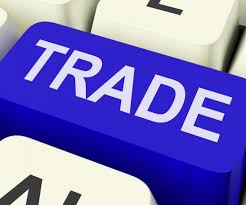We have probably all heard the expression: “investing for the long term”. One of the main reasons why investing for the long term is generally considered better than trading, is because of the costs of realizing a gain and having to pay taxes. One does not really appreciate the full extent of the money lost due to taxes, however. Let me show you the numbers…
In the following example I will illustrate what the tax implications are of trading often. I assume that capital gains taxes are paid at 13.3% – the current South African Capital Gains Tax rate. The calculations are based on the growth of a R1,000 portfolio, growing at 10% for 30 years. I also ignore annual exclusions (the amount of capital gain that is not taken into account in calculations) to make the point clearer.
Let’s assume the investment gains are not taxed, as our base case. This compares well to tax-deffered accounts, like retirement accounts, where you invest with after-tax funds and are not taxed on gains when you retire. We will compare investment gains lost due to taxes with this base case.
Our R1,000 investment will grow to approximately R17,450 over the 30 years, if no taxes are paid.
1st comparison: The investor turns over (sells and replaces) one-fourth of his portfolio every year:
The investment will be worth R15,940 in 30 years time
The investor would lose R1,510 (= 17,450 – 15,940) to taxes over the 30 year term
This represents a loss of 8.7% (= 1,510 / 17,450) of your total possible portfolio if no taxes are paid
2nd comparison: Turn over half of your portfolio every year over 30 years:
The investment will be worth R14,550 in 30 years time
The investor would lose R2,900 (= 17,450 – 14,550) to taxes over the 30 year term
This represents a loss of 16.7% (= 2,900 / 17,450) of your total possible portfolio if no taxes are paid
3rd comparison: Turn all positions once every year for 30 years
The investment will be worth R12,110 in 30 years time
The investor would lose R5,340 (= 17,450 – 12,110) to taxes over the 30 year term
This represents a loss of 30.6% (= 5,340 / 17,450) of your total possible portfolio where no taxes are paid
Yep, that is correct…Your 13.3% per year capital gains tax rate has turned into a 30% loss of your possible investment gains due to taxes. This effect gets even more pronounced as tax rates rise. Here in South Africa, if you trade above a certain number of trades per year, you are classified as a “trader” by the tax authorities. This means that you have to pay tax on capital gains at your normal tax rates. These marginal tax rates can go up to 40%.
Let’s take the example of a person paying a middle class marginal tax rate (35%), who is classified as a trader by the tax authorities and turns over his portfolio once every year:
The investment will be worth R6,610 in 30 years time
The investor would lose R10,840 (= 17,450 – 6,610) to taxes over the 30 year term
This represents a loss of 62% (= 10,840 / 17,450) of your total possible portfolio where no taxes paid.
You read that right: 62% !!!
Over the long term, trading often will cost you a HUGE amount in taxes! This is assuming that you are successful in getting a 10% gain per year consistently – a feat in itself…
It is important consider this illustration when you decide on “getting a quick gain” by trading in-and-out of stocks. I hope this opens your eyes, like it did mine, about the effect that taxes have on gains when you trade often.
Kevin Mzansi